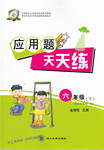题目内容
I had the meanest mother in the whole world. While other kids ate candy for breakfast, I had to have cereal, eggs or toast. When others had cokes and candy for lunch, I had to eat a sandwich. As you can guess, my supper was different from the other kids' also. But at least, I wasn't alone in my sufferings. My sister and two brothers had the same mean mother as I did.
My mother insisted upon knowing where we were at all times. You'd think we were on a chain gang. She had to know who our friends were and where we were going. She insisted if we said we'd be gone an hour, that we be gone one hour or less — not one hour and one minute.
We had to wear clean clothes and take a bath everyday. The other kids always wore their clothes for days. We reached the height of insults because she made our clothes herself, just to save money.
The worst is yet to come. We had to be in bed by nine each night and up at eight the next morning. We couldn't sleep till noon like our friends. So while they slept --- my mother actually had the nerve to break the Child Labor Law. She made us work. We had to wash dishes, make beds, learn to cook and all sorts of cruel things. I believe she laid awake at night thinking up mean things to do to us.
Through the years, things didn't improve a bit. We could not lie in bed, "sick" like our friends did, and miss school. Our marks in school had to be up to par. Our friends' report cards had beautiful colors on them, black for passing, red for failing. My mother, being as different as she was, would settle for nothing less than ugly black marks.
As the years rolled by, first one and then the other of us was put to shame. We were graduated from high school. With our mother behind us, talking, hitting and demanding respect, none of us was allowed the pleasure of being a drop-out.
My mother was a complete failure as a mother. Out of four children, a couple of us attained some higher education. None of us have ever been arrested or divorced. Each of my brothers served his time in the service of this country. She forced us to grow up into God-fearing, educated, honest adults. Using this as a background, I am now trying to raise my three children. I am filled with pride when my children call me mean. Why? Because now I thank God every day for giving me the meanest mother in the whole world.
1.What can we infer from the passage?
A. The author is not happy to have such a mean mother.
B. The author's mother broke the Child Labor Law to make money.
C. The author's mother failed to educate her children to be honest adults
D. The author is strict with her children.
2.Why couldn’t the author eat candy for breakfast?
A. Because she preferred cereal, eggs or toast to candy.
B. Because her mother couldn’t afford for candy.
C. Because her mother thought it not good to eat candy for breakfast.
D. Because her mother had to gave candy to the author’s sister and two brothers.
3.The author’s mother made her children work because _________ .
A. she had trouble falling into sleep
B. she could not keep such a big family without her children’s help
C. she was teaching her children to live by themselves.
D. she had no time to do housework.
 应用题天天练四川大学出版社系列答案
应用题天天练四川大学出版社系列答案
